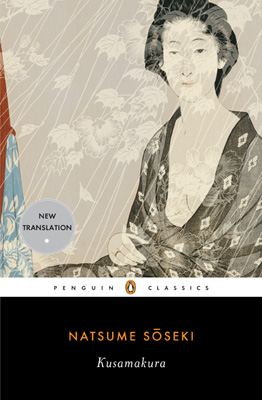The Arts in Eastern Europe and the Best in Translation
By Bill Marx
First, I want to mention a couple of volumes that I unaccountably left off my World Books 2008 round-up of the best fiction and non-fiction candidates. No, it is not another salute to the current international fiction daring Roberto Bolaño, a fever fanned by the appearance of his huge tome “2666” in English. Bolaño is a fine writer but, judging by the bloated Kerouacian shenanigans in his novel “The Savage Detectives, his best work may lie in his more compressed, disciplined volumes, such as “By Night in Chile” and his short story collection “Last Evenings on Earth.”
A far more substantial discovery in translation, the Russian writer Andrey Platonov (1899-1951), has not yet received the attention he richly deserves here, perhaps because he lacks the requisite nihilistic flash and adolescent glitter. Or, as one of his translators Robert Chandler suggests, it could be that Platonov cannot be easily slotted: “in his mature work he seems to delight in eliding every conceivable boundary — between animal and human, between the animate and the inanimate, between souls and machines, between life and death.”
What’s more, a victim of Stalin, he is a reminder of the Cold War. Corrected, uncensored texts of Platonov’s began to appear in English from Britain’s Harvill Press around the same time the Bolano translation wave launched in the late nineties. These books, including the novellas “The Return,” Soul,” and “Happy Moscow,” reveal much more than the work of an indispensable Russian master. Platonov turns out to be one of the finest writers of the 20th century, worthy to stand alongside Kafka and Joyce.
So thanks to NYRB Classics for publishing the Platonov collection “Soul,” which contains an informatively polemical introduction by Chandler, a smattering of stories (“Among Animals and Plants” appeared last year in “The New Yorker”), and the short novels “Soul” and “The Return.” I am still waiting for an American publisher for “Happy Moscow” — though the Harvill Press edition is in print. As for Platonov’s masterpiece “Chevengur,” rumors are that a new translation is in the works — a rocky out-of-print effort from Ardis is available if you look hard enough.
Meanwhile, “Affective Mapping,” Jonathan Flately’s wise new critical study (Harvard University Press) about how some modernists envisioned a saving grace for depression contains a superb analysis of Platonov’s “revolutionary melancholia” in “Chevengur.” Flately translations read quite well.
Later this year NYRB Classics will publish Chandler and Geoffry Smith’s translation of “The Foundation Pit.” (See comment below — turns out that this will be a new version based on a new, authoritative version.) I will write a longer appreciation of Platonov then.
Also, “Kusamakura,” a new translation (from Penguin Classics) of an early novel (1906) by the acclaimed Japanese author Natsume Sōseki, presents an eye-opening improvement over the earlier version of the book, which was called “The Three-Cornered World” in English. Meredith McKinney’s lively version finds mildly absurd pathos in this wryly meditative dramatization of the creative process filtered through the conflict between tradition and modernity, the call to synthesize the literary merits of “East and West.”
“Written when Sōseki was in his late thirties,” writes McKinney in her introduction, “balanced at the edge of a professional writing career, and self-consciously placing itself at the beginning of a new century, with Japan balanced on the edge of its own very different future, “Kusamakura” embodies a moment when Sōseki, and Japanese literature, paused to look backward and forward and to play with possibilities.” A transitional book about the vagaries and promises of transition — a useful literary guide for the early years of this century.
Polish critic Igor Stokfiszewski (left) and Boris Groys, a philosopher, essayist, art critic, and media theorist.
On the World Books podcast I talk to two writers who took part in a recent conference at MIT presented by the school’s List Visual Arts Center. The 2008 Wasserman Forum was entitled “Eastern Europe Today and the Role of Art in Times of Change.” The line-up of speakers included critics, artists, and curators who talked about the role of the arts in helping Eastern European countries understand the past and create the future.
I speak to Polish critic Igor Stokfiszewski, who currently writes for “Political Critique” magazine as well as a number of other newspapers and magazines. Joining us is Boris Groys, a philosopher, essayist, art critic, media theorist, and an internationally acclaimed expert on late-Soviet postmodern art and literature and the Russian avant-garde. My chat with Igor and Boris ranges from speculation about how a new “Cold War” might influence the arts in Eastern Europe to whether globalization shapes art for the better or worse. Their responses to these and other issues may surprise you.
Boris Groys’s latest book, “Art Power,” explores the paradoxical virtues of modern art, arguing that the best artists create work that simultaneously embraces and denies political message mongering. Groys himself is addicted to paradox – but “Art Power,” published by MIT Press, proffers a provocatively optimistic look at the role the visual arts play in the world today.
Tagged: Andrei-Platonov, Books, Featured, Kasamakura, Natsume-Soseki, Persona Non Grata, Roberto-Bolaño



Thanks for the mention of the forthcoming Platonov novel, The Foundation Pit. I should make a slight correction, the translation (the first to be made from the authoritative version of the Russian text) is translated by Robert & Elizabeth Chandler and Olga Meerson. Here’s a link to the NYRB page http://www.nybooks.com/shop/product?usca_p=t&product_id=8831
I have never heard about Platonov. But now I’m really excited.